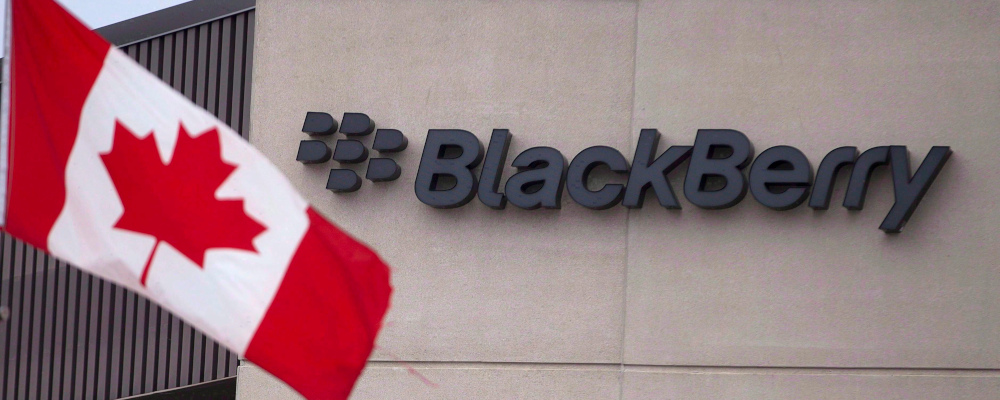Last year was bad one for “bad” founders. Samuel Bankman-Fried was convicted of fraud and WeWork, founded by Adam Neumann, declared bankruptcy. North of the 49th parallel, a film adaptation of the early days of Research in Motion (RIM) demonstrated that the rot in startup culture transcends time and national borders.
BlackBerry (2023), directed by Matt Johnson, is set in the late 1990s and early 2000s and recounts the rise and fall of RIM. It is now streaming as a three-part series on CBC Gem.1The movie also reveals patterns of behaviour all-too-typical in some entrepreneurial founders that, while they may have helped propel innovation, are now coming to their full fruition 20 years later. Examples include the colossal business, moral, and legal failures of Adam Neumann’s WeWork, Samuel Bankman-Fried’s cryptocurrency exchange FTX, Elizabeth Holmes’s medical start-up Theranos, and Charlie Javice’s student loan company Frank.
On one hand, BlackBerry is one of Canada’s most well-known success stories. According to some reports, at its peak, the Waterloo Ontario-based RIM controlled 50 percent of the global mobile phone market—an astonishing achievement. But how was this accomplishment realized?
For those unfamiliar with RIM’s story, brilliant engineers and co-founders Mike Lazaridis and Doug Fregin are unable to sell their vision for an internet-connected phone that would enable users to send emails on the move. These “hackers” team up with a “hustler,” the investor and business savant Jim Balsillie, and together create the smartphone as a new market category. The engineers overcome technological hurdles to address the problem of data usage for the phone carrier, enabling hundreds of thousands of devices to operate without crashing the network, making the new style phone viable.
After achieving staggering sales results through complete domination of the smartphone category, RIM is blindsided by an Apple-driven shift in the phone carrier market with companies like Bell, Telus, and Verizon changing their focus from selling minutes towards the selling of data. In a dramatic scene, a phone company executive tells Balsillie: “You know what the problem with sellin’ minutes is? There’s only one minute in a minute.” This evolution of the carriers’ business model converted RIM’s early market advantage—low data stress on the networks—into a liability.
BlackBerry portrays the engineers as idealists, committed to the design and integrity of the product. Balsillie is presented as a ruthless driver of growth at any cost. BlackBerry suggests that both these attributes were integral to RIM’s phenomenal success. At one point early in the story Balsillie says: “How long to build a prototype of the phone?… A prototype, a shell I can wave around in the meeting. It can be a complete piece of sh*t!”
In this telling of events, Balsillie is accessing the power of “fake it until you make it” to secure distribution for a product that had potential but was still largely conceptual. At the sales meeting, it takes both Balsillie’s vision and Lazaridis’s technical understanding of the phone carrier’s business to make the sale.
Later in the story, Lazaridis is confronted by client demand for a product that looks like the new iPhone—i.e. a BlackBerry model that does not have the signature physical keyboard. On the spot he “invents” a new product, the ill-fated BlackBerry Storm. RIM then must move the production of the phone to China to meet the delivery deadline, resulting in an inferior product that does not meet the quality standards that made RIM famous.
Early-stage founders are often selling an idea rather than a finished product. But as we see in the film, more established companies can also get caught in the “faking it until you make it” trap to remain relevant as new competitors emerge. In both cases, the consequences can be disastrous.
At the time when BlackBerry’s dominance was threatened by the iPhone, combined with the shift in the carrier market’s revenue model, RIM also found itself in trouble with the U.S.-based Security and Exchange Commission and the Ontario Securities Commission for backdating stock options. The stock options were allegedly backdated to help RIM grow its workforce with generous compensation packages that would attract the top global talent to Waterloo. Did Balsillie think the end justified the means? He must have at the time. One has to wonder if in hindsight he felt it was worth it, as both the company and its senior executives subsequently faced charges. Ultimately the issue was settled by paying significant fines to the OSC and SEC, as well as providing restitution to the company.
RIM never recovered, losing market share and value. Today, the company has 0 percent of the mobile phone market. Since the events described in BlackBerry, the company has been struggling to find its place in the market, pivoting to focus on security and moving away from hardware. The next chapter for BlackBerry will be decided by incoming CEO John Giamatteo, replacing John Chen who left in November 2023 after 10 years at the helm of the company.
BlackBerry shines a light on a longstanding problem with startup and business culture that pre-dates the cases of business failure making headlines today and transcends international borders. While the success of RIM helped to make Canada a global technology leader and strengthened Kitchener-Waterloo’s position as an innovation hub, it did not make Canada an easier place to start or build a business.
Specifically, my experience as a founder—and one shared by many, as borne out by conversations with other Canadian founders—is that finding early-stage funding presents enormous if not insuperable challenges.
As recent events have revealed, due diligence is critical for investors, but lack of access to capital is stifling innovation in Canada and making us less competitive. Canada does not offer the same culture of entrepreneurial support through private or public sources as other countries are committed to providing. Few companies now realize the level of success that RIM experienced in its heyday. Our support of new businesses matters: according to 2021 data from Statistics Canada, 64 percent of Canadians work for small businesses. BDC has reported that there are 100,000 fewer entrepreneurs today than there were 20 years ago.

Ultimately, the BlackBerry story has become ingrained in the Canadian business culture as a cautionary tale alongside other failures like that of Nortel. Perhaps Blackberry’s most significant legacy can be found in the Canadian tentativeness about supporting innovation and our reluctance to celebrate success. That’s a shame. Let’s work to change this and develop ways to help responsible innovators access funding, assuming a reasonable amount of risk and realistic expectations for reward.
I know it is complicated and many new approaches result in unintended consequences, but there are ideas worth considering. Here are a few off the top of my head. Offering a guaranteed living wage or income replacement to founders who are building a new business for a fixed time period; offering tax credits for founders who have failed given that the allowable business investment loss does not consider the “sweat equity” founders have contributed; finding ways to reduce the barriers to accessing early-stage capital, which often requires matching funds and does not value unpaid hours completed by the founder(s); or requiring our charter banks to put a little skin in the game with pre-revenue companies—all could help get more companies off the ground.
There’s no reason Canada can’t be a place where important, innovative things still get built. But that begins at the start-up level. There are a lot of Canadians with big ideas. We must empower them if we want to produce more success stories than cautionary tales.




